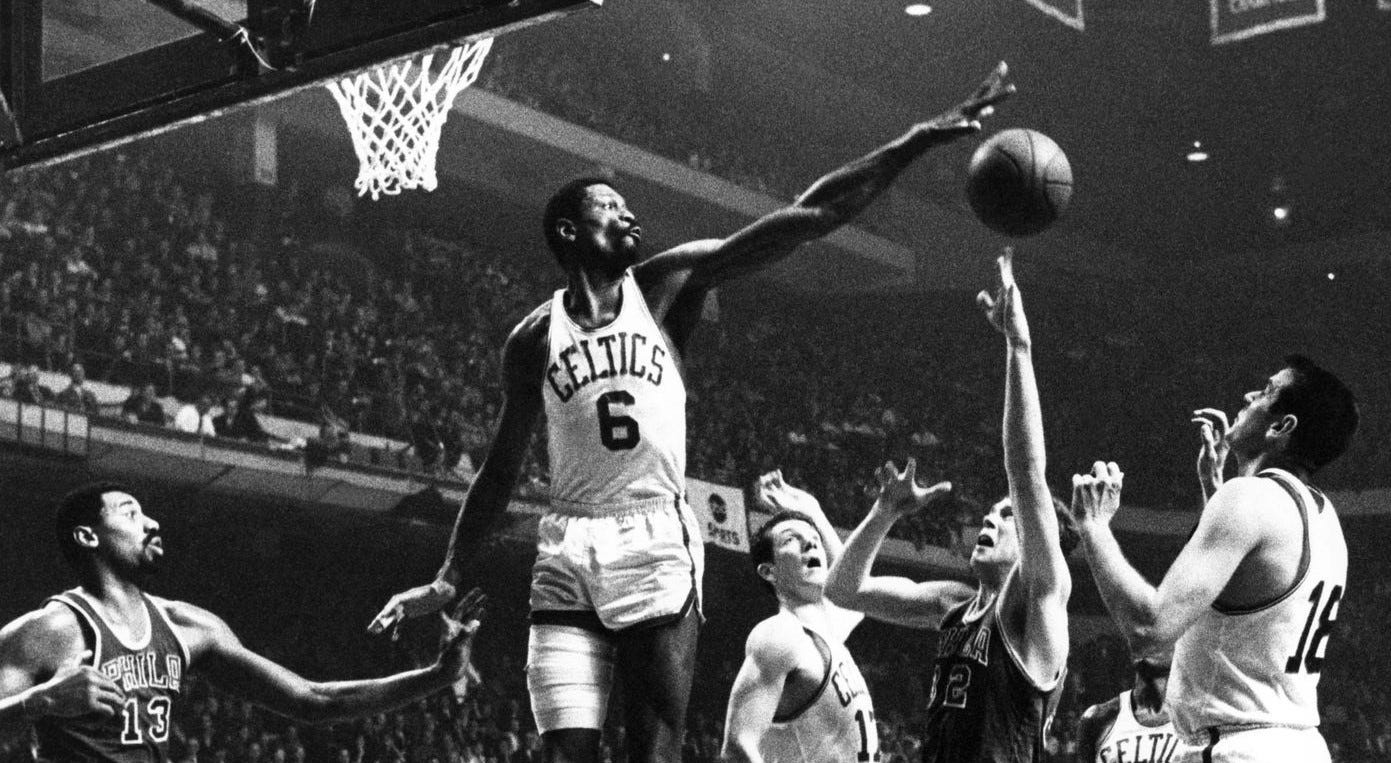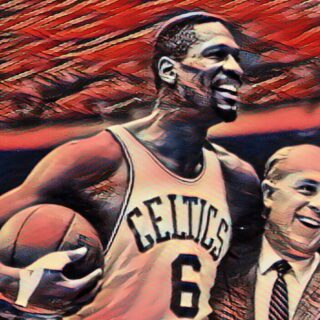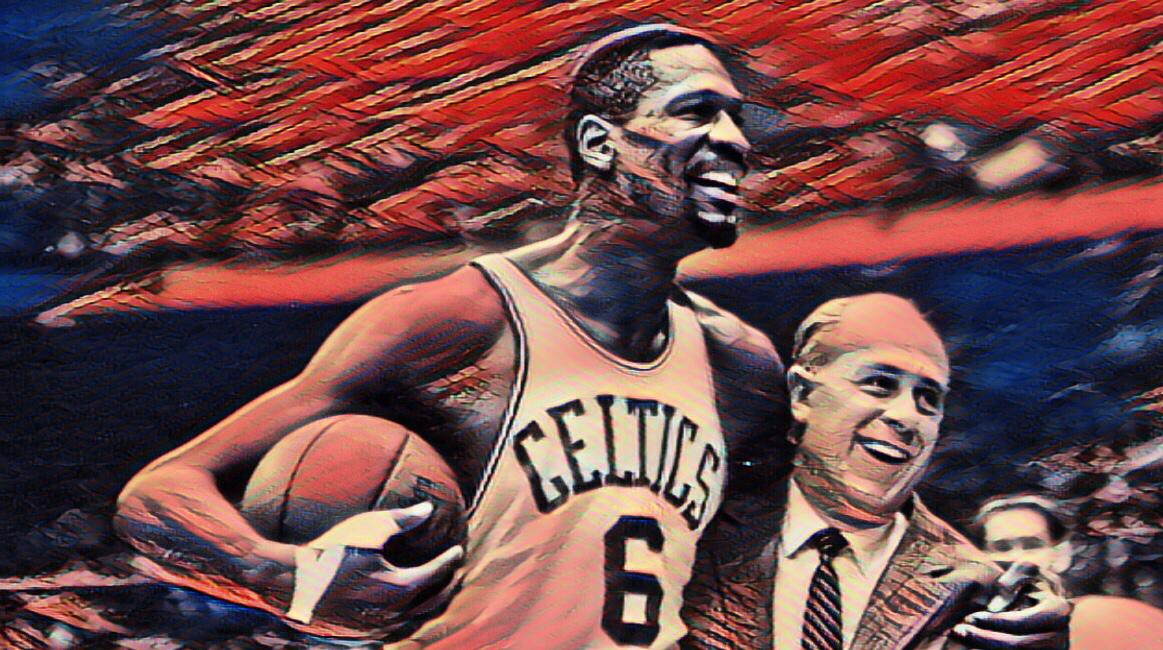Bill Russell’s journey from an ordinary boy to an extraordinary basketball legend and civil rights icon shows us that dreams can indeed come true. Here’s how he turned his dreams into reality, breaking barriers and setting records along the way.

Chapter 1: The Legend of Bill Russell
When you think of the term “winner,” Bill Russell’s name is the one that shines the brightest in the world of basketball. Imagine snagging 11 championships in just 13 seasons! That’s not just winning; that’s absolute domination. What set him apart was his defensive genius—he could change the course of a game without even touching the ball on offense. He was the epitome of a team player, playing the game in his head long before stepping on the court. Russell was a symbol of sacrifice and teamwork, reminding everyone that these were the keys to success in basketball.
Bill Russell passed away a few months ago, leaving behind memories of his infectious smile, snowy white hair, iconic goatee, and his wise-old-man vibe. But beyond the championships, Russell was a fierce activist, fighting for civil rights long before it was trendy. He clashed with media and fans who didn’t appreciate him despite his success. He was grumpy, idealistic, and committed to racial integration.
Russell didn’t just play basketball; he revolutionized it. He envisioned the game in a way no one else did. In his dreams, a new kind of basketball and a better world were possible. Through his career, he made those dreams a reality.

Chapter 2: Fighting for Human Rights
Bill Russell’s journey was marked by battles against racism, exclusion, and injustice. Despite being one of the greatest basketball legends, his path was strewn with obstacles. Russell was not just a phenomenal athlete; he was an outspoken civil rights activist.
To understand his fight, you need to grasp the spirit of those times—a time when America was stained by racism, where being anything but white often meant you were invisible. Black people were expected to stay out of sight, grappling with poverty and discrimination. Good schools, clean neighborhoods, and fancy restaurants were for whites only.
Russell’s father, born and raised in Louisiana, moved to California to escape the vicious cycle of racism in the South. One incident that triggered this move was when a white man shoved him for not stepping off the sidewalk. This made Russell’s father realize that his children deserved to grow up in a less hostile environment.
An example of the pervasive racism: When Russell returned home with his Olympic gold medal and took his fiancée Rose to a restaurant in Louisiana, they were refused service and had to eat crackers on a sidewalk. Talent, hard work, and even Olympic gold meant nothing if you weren’t white.
Growing up, Russell was a bookish kid, proud of his Oakland Library card. One day, while reading about the American Revolution, he came across a paragraph that praised the life of slaves in America over their existence in Africa. It was a turning point for him, shaking his belief in history books that he and his brother had revered.
Chapter 3: Fighting for Racial Integration
Throughout his life, Russell fought against racial inequality, becoming a powerful voice for civil rights. In the 1950s and 60s, America was steeped in racial segregation, and Russell faced countless challenges as a black basketball player. He was subjected to racial slurs, segregated laws, and was often barred from hotels for security reasons.
Russell took a stand against segregation in sports. In 1963, he protested against the racist policies of a hotel hosting the NBA All-Star Game. This protest marked a significant point in the fight against racial discrimination in the NBA. He worked closely with Martin Luther King Jr., participating in protests and speaking out for equality and justice.
Russell stood by Muhammad Ali when he refused to join the military draft, supporting him at a rally in Cleveland. He also supported the black power salute protest by American athletes at the 1964 Olympics.
As the first black coach in the NBA, Russell led the Celtics to two championships as a player-coach. Despite his monumental success, he refused to attend his jersey retirement ceremony in 1969, choosing to avoid the media and fanfare. It wasn’t until 1997 that he finally attended a public ceremony.
Russell’s impact extended beyond his playing days. He was inducted into the Hall of Fame in 1975 but declined the honor until Chuck Cooper, the first black NBA draft pick, was inducted in 2019.
In 2011, President Barack Obama awarded Russell the Presidential Medal of Freedom, recognizing his tireless efforts for civil rights and equality.

Chapter 4: Russell's Farewell
Bill Russell’s life was filled with dreams and battles. He dreamed of a new kind of basketball and a world where black and white people could coexist as equals. Despite facing threats, exclusion, and constant challenges, he remained unwavering in his fight for justice.
Russell’s legacy is more than just his basketball accolades. He envisioned a world where people were judged by their abilities and character, not the color of their skin. Even after his passing, his influence continues to inspire and shape the world of basketball and beyond. His life was a testament to the power of dreams and the relentless pursuit of a better world.







